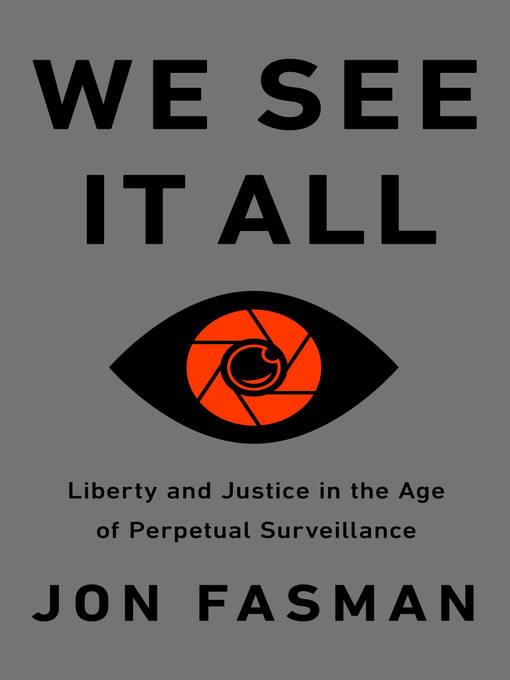
We See It All
Liberty and Justice in an Age of Perpetual Surveillance
کتاب های مرتبط
- اطلاعات
- نقد و بررسی
- دیدگاه کاربران
نقد و بررسی

September 28, 2020
Journalist Fasman (The Unpossessed City) delivers a deeply reported and sometimes chilling look at mass surveillance technologies in the American justice system. He notes that police departments in more than 100 cities use Shotspotter, an app that employs acoustic sensors mounted on traffic lights to identify and locate the sound of gunfire; speaks to an aeronautical engineer whose company makes drone-mounted camera systems that can surveil an entire city; and visits an Israeli security firm wanting to equip cameras that automatically read license plates with voice and facial recognition software and sell them to private citizens. Because many of these technologies are new, Fasman explains, there are few policies in place to regulate them, and even fewer penalties for ignoring the policies that do exist. A section on China’s “tech-enabled repression” of Uyghur Muslims and its financing and building of Ecuador’s emergency response network illustrates the threat of mass surveillance in countries with “weak institutions or scant regard for civil liberties,” while a portrait of citizen activists in Oakland, Calif., who fought back against a planned citywide monitoring system offers lessons on how to “forestall the surveillance state.” Fasman avoids alarmism while making a strong case for greater public awareness and tighter regulations around these technologies. This illuminating account issues an essential warning about a rising threat to America’s civil liberties.

November 1, 2020
A cogent critique of the age of ubiquitous surveillance. By Economist correspondent Fasman's account, much of the present inventory of tools used by various police agencies is a threat to our civil liberties. Take the cameras, for instance, with which police vehicles are ever more frequently equipped, ones that take photographs of license plates and feed those images into a vast database. Now, the author points out more than once, if a human police photographer were to wander up and down a street taking photographs of license plates, we would want to know why; so how has this less intrusive technology become so widespread and so little contested? Similarly, he suggests, facial recognition technologies normalize the workings of a police state in the making. It's not just the police: As Fasman writes, a Chinese entrepreneur has made a fortune with an app called Clearview, which, while widely used by police agencies, allows nearly anyone to gather private information about anyone else. That same technology was developed by Google--and, says its former chairman, was "the only technology that Google has built and, after looking at it...decided to stop," since the possibilities of its being put to bad uses were immediately obvious. It would not surprise readers to know that the National Security Agency can eavesdrop on anyone's cellphone conversations, but it certainly should surprise everyone to know that even the smallest police department can do it. Similarly, any police agency can send a drone to photograph a perfectly legal demonstration. The overarching question such abilities raise, Fasman notes provocatively, is a simple one: "How much state surveillance are you willing to tolerate for improved public safety?" Anything more than the minimum is dangerous, he answers, for "that way China lies." An urgent examination of police-state intrusions on the privacy of lawful and law-abiding citizens.
COPYRIGHT(2020) Kirkus Reviews, ALL RIGHTS RESERVED.

























دیدگاه کاربران